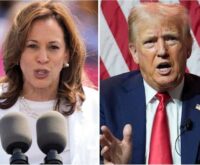JACKSON, Miss. (AP) _ Mississippi government agencies needs to make a stronger effort to buy more goods and services from businesses owned by minorities and women, leaders of the Legislative Black Caucus say.
“We allocate billions of dollars for tools and resources to lure large corporations to this state,” said Sen. Kenny Wayne Jones, D-Canton, the caucus chairman said this past week. “Too often, minority-owned and women-owned, and African American-owned businesses in particular don’t get anywhere near their fair share of public dollars.”
The state agency that pushes for job creation, Mississippi Development Authority, is required by law to track the amount of state procurement awarded to minority businesses. During the budget year that ended in June 2013, the state had $2.1 billion of procurement. Only $49 million, or 2.3 percent, went to minority-owned businesses.
Such a small amount is “unfair, unethical and unacceptable,” Jones said. He said that during the upcoming legislative session, caucus members will focus on ways to push participation as high as 15 percent.
MDA began tracking minority participation in 2010. Since then, the participation has grown by almost 20 percent, though it still represents a small slice of total state spending.
The caucus endorsed WhereToGo411.com, an interactive online marketplace and database that helps connect black-owned businesses to local and national buyers.
The state Institutions of Higher Learning last year launched its Minority Economic Opportunity Initiative and entered an agreement with the online marketplace. The state’s eight public universities and the University of Mississippi Medical Center now use the database to send quotes, requests for proposals and subcontract opportunities to African American vendors, and the businesses can use it to submit quotes and proposals.
James Covington, who runs the website, said during a news conference with Black Caucus members at the Mississippi Capitol, said black businesses are too often frozen out of government work, which stifles their growth.
“And if you have a high unemployment rate in the African-American community and the African-American business class is a key element for employing people, would it not make sense to invest in those entities?” Covington said.








